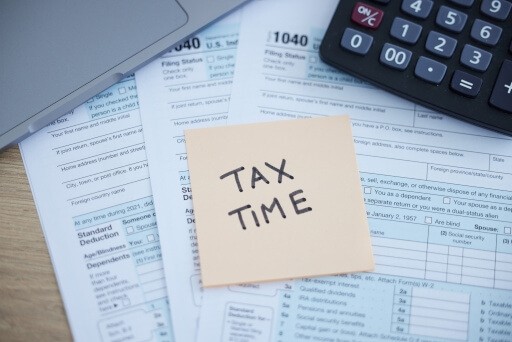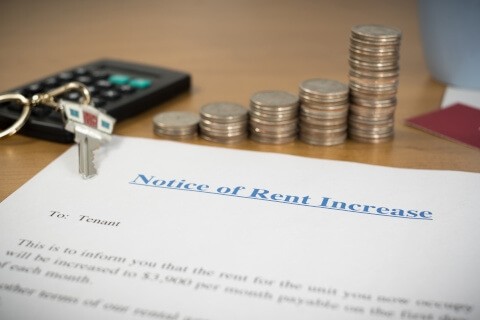Whether you call it a savings account or an emergency fund, it’s wise to have some extra money saved up for a rainy day. Financial advisors recommend property owners build an emergency fund of three to six months’ worth of expenses. This fund would cover the mortgage, taxes, and insurance of your rental, with room in the budget for the occasional repair. With a few simple steps, you’ll be able to build an emergency fund for your rental properties.
1. Separate Your Bank Accounts
If you’re a landlord with one or a few rental properties, you may think it’s easier to manage your rentals as an extension of your personal finances. However, this can be risky or even illegal. In fact, most states require a landlord to store their tenant’s security deposit in a separate bank account to ensure the funds are not mixed in with personal money or deposits from other tenants. Because of this, it’s in your best interest to separate your bank accounts, and for some landlords, it’s wise to create a business entity for their rental business. Every landlord should have:
- An operating account. This is where you’ll deposit rent and pay the mortgages, taxes, insurance, and other expenses for your properties.
- A security deposit account for each rental unit. You’ll need one bank account (with check writing privileges) for each unit you own. Place the tenant’s security deposit into this account and leave it there until the end of the lease.
- An emergency fund account for all properties. This is a single savings account (or emergency fund) that acts as your safety net. You can combine this money with your operating account if you prefer, but you may find that it’s better off in its own account safe from being spent.
2. Build a Realistic Emergency Fund
Like a personal savings account, your emergency fund should be built to handle all unexpected repairs and help mitigate your vacancy losses. If you’re questioning how much you should have in your emergency fund, remember the three to six months of expenses rule of thumb. Keep in mind that the more rental properties you own, the more complicated this will be. If you only have a few units, then your rental income will be lower and major repairs will therefore likely consume a higher percentage of your overall rental income.
If you grow your rentals to more than 10 to 15 units, you are essentially diversifying your assets, and each property becomes a smaller percentage of the whole. As such, you can adjust the formula to be a minimum of three months’ worth of expenses for a third of your properties. Essentially, the total is one month’s expenses for the sum of all your properties.
How to calculate a minimum emergency fund
To calculate a small asset emergency fund (if you have one to 10 units), add up the following expenses for all your rental properties:
- Monthly mortgages
- Taxes
- Insurance premiums
- Condo fees (if applicable)
- Operating utilities
You’ll then want to multiply this total by three and cut this new total in half to reveal your minimum emergency fund. Repair costs and service fees are left out from your expenses because if you need to access your emergency fund, then one of the first things to get cut from your budget will be nonessential expenses (i.e., landscaping). You should, however, always include utilities in your expense calculations because as the landlord, you have a legal obligation to keep the electricity and heat on (keeping the unit habitable) even if the tenant fails to pay rent.
The Benefits of Building an Emergency Fund
Regardless of how many rental properties you own, it’s vital to build an emergency fund. As a landlord, you should set aside money for every single property you own and budget for this savings account every month. This is a great place for a portion of your rental income to go on a monthly basis. This savings account will give you peace of mind and provide you the security you need to grow a successful rental business.
To stay organized, consider tracking all of your expenses online. Having one spot to view all expenses can help you plan your savings accordingly. There is a cost to doing business, and that includes mortgages, taxes, and major repairs. If your tenant is holding up their end of the deal by paying rent, you’ll still be responsible for making timely repairs, which will often cost you. And if your tenant fails to pay rent (or your unit remains vacant) and you are left with paying the expenses without a stream of rental income from that unit, then your emergency fund will be waiting to assist you.











